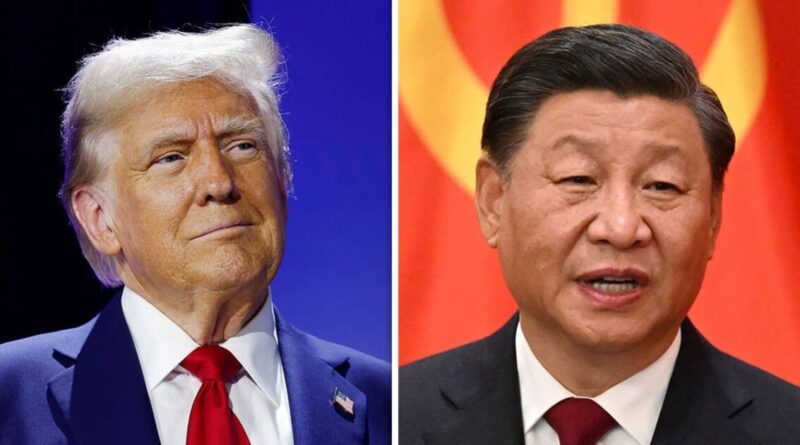China ‘panic’ as Trump’s return spells trouble for economy | World | News
China is implementing new measures to try and give its stagnating economy a boost as Donald Trump is set to return to the White House in January.
Beijing wants to address the tens of billions of dollars of debt currently saddling local governments to prevent it from slowing the country’s overall growth.
After President-elect Trump’s victory in the US election, economists are warning of potential disruption for the global economy.
Mr Trump promised to introduce hefty import taxes that could see tariffs of 60 percent on goods made in China.
This could pose yet another challenge to the Chinese economy that is already grappling with debt, unemployment, a property market crisis and an ageing population.
When Mr Trump was President from 2017-2021, he put 25 percent tariffs on Chinese goods.
China analyst Bill Bishop believes Mr Trump will fulfil his promise of hitting Beijing with heavy duties.
He told the BBC: “I think we should believe that he means it when [he] talks about tariffs, that he sees China as having reneged on his trade deal, that he thinks China and Covid cost him the 2020 election”.
The International Monetary Fund (IMF) forecasts China’s economy to grow 4.8 percent in 2024. China’s target is 5 percent.
Next year, the growth will slow further to 4.5 percent, it is forecasted.
Larry Hu, chief China economist at Macquarie, said on Wednesday: “Trade war 2.0 could end China’s ongoing growth model, in which exports and manufacturing have been the main growth driver.”
Tong Zhao, senior fellow at the Carnegie Endowment for International Peace, told CNN: “Although Beijing is deeply concerned about the unpredictability of Trump’s China policy, it reminds itself that challenges also bring opportunities.
“Despite fears of a renewed trade war, Beijing believes that Trump’s tough tariff policies would be deeply unpopular in Europe, creating an opening for China to strengthen economic ties with Europe and counter US efforts to intensify technology and supply chain decoupling between China and Western nations.”




